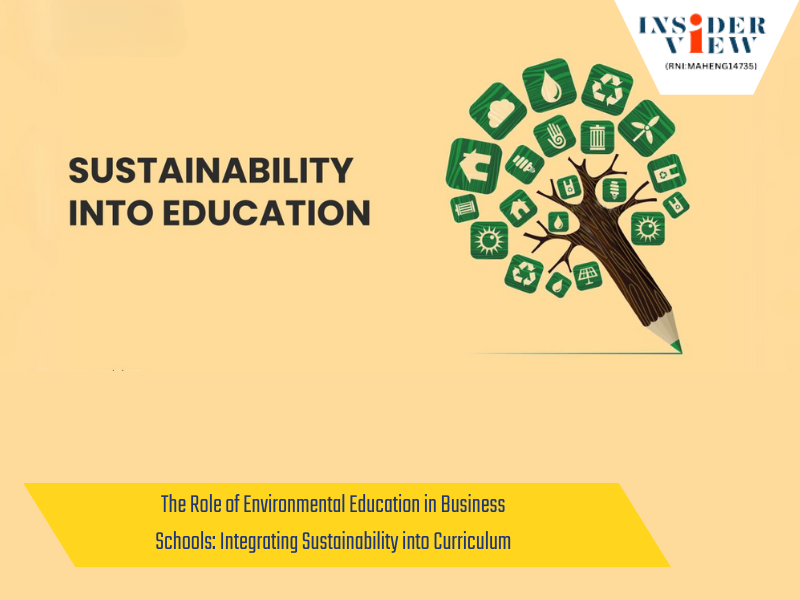In an era where climate change and environmental degradation rank among the most pressing
global challenges, the role of business schools in shaping future leaders who are not only business-savvy but environmentally conscious cannot be overstated. Integrating environmental education within business curricula is no longer a choice but a necessity a transformation that holds the key to fostering a new generation of leaders committed to sustainable business practices.
The Need for Environmental Stewardship in Business Schools
With more and more people expressing significant concern about the impacts of global warming, the call for change is louder and clearer than ever before. The incorporation of sustainability into the business curriculum is about fostering a mindset of responsible stewardship among future leaders.
A recent #OECD findings underscore the importance of education systems in building sustainable societies, with an overwhelming 90% of educational systems identifying environmental sustainability
as a critical priority for 2024. It calls for an educational paradigm shift that couldn’t be timelier ,considering the escalating environmental crises confronting our global community
Furthermore, the integration of sustainability into the curriculum of business schools is gradually gaining momentum. According to Research Gate, sustainability-linked courses accounted for nearly 15% of total courses in business schools, reflecting a growing recognition of the importance of environmental stewardship in business education. Yet, the journey towards full integration is fraught with challenges, including curriculum redesign, faculty training, and developing relevant case studies that bridge the gap between theory and practice.
Navigating Challenges through Innovative Approaches
Overcoming these challenges requires innovative pedagogical approaches that not only impart knowledge but also inspire a sense of responsibility and a vision for sustainable future business practices. As per, The Journal of Environmental Education, digital technologies, for instance, offer a unique
avenue to enhance environmental education by providing dynamic and interactive learning experiences that can deepen students’ understanding of complex environmental issues.Real-world sustainability challenges and success stories are exemplified through various case studies that demonstrate how businesses can address environmental and societal issues while also achieving success. These case studies highlight the practical application of sustainability principles and encourage critical thinking, problem-solving, and ethical decision-making among students.
A Mandate for Action
#UNESCO’s ambitious target to make environmental education a core curriculum component in all countries by 2025 further underscores the urgency and global consensus on the critical role of education in driving the sustainability agenda. Business schools, therefore, must heed this call to action by adopting a multi-faceted approach to curriculum development that not only integrates environmental education but also fosters a culture of innovation, ethical leadership, and social responsibility.

The integration of environmental education in business schools represents a crucial step towards equipping the next generation of leaders with the knowledge, skills, and ethos to navigate the challenges of a rapidly evolving, sustainability-driven global landscape. By embracing innovative pedagogical approaches and aligning curriculum development with global sustainability targets, business schools can play a pivotal role in shaping a future where business success is inseparable from environmental stewardship and social responsibility.
The time to act is now, and the opportunity to make a lasting impact on both business education and the broader sustainability agenda has never been greater.

Dr. Asmita Chitnis, Director, Symbiosis Institute of International Business (SIIB) Pune
Analytical, Innovative, adaptable to any environment and extremely passionate about teaching. Currently serving Symbiosis Institute of International Business (SIIB), Pune as its Director. A post graduate in Statistics , Asmita holds a Ph. D degree in the field of Operations Management. She started her career with National Institute of Bank Management (NIBM) as a researcher and worked on different projects of Reserve Bank of India (RBI) during this tenure. Then, she moved into the teaching domain and ever since has more than 29 years of academic and corporate training experience to her credit.




Leave a Reply